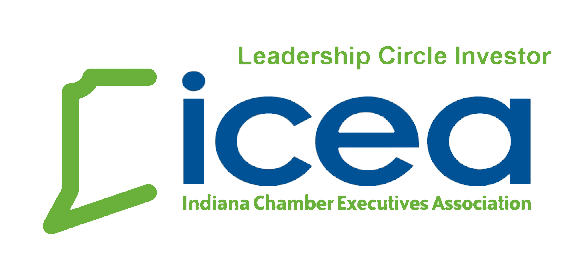Indiana Senate Committee Considering Legislation to Support Local Tourism
SB 61 / Chamber Supports
Placeholder
January 19, 2024
Bills to Boost Reading, Childcare Clear Senate Committees
SB 1 and 2 / Chamber Supports
With legislation aimed at improving reading and literacy rates topping Senate Republicans’ 2024 agenda, the Senate Education Committee passed Senate Bill 1 on reading skills this week on a 9-4 party-line vote. The legislation is authored by Sens. Brian Buchanan (R-Lebanon), Jeff Raatz (R-Richmond) and Linda Rogers (R-Granger).
Nearly one in five Indiana students has failed the state’s third grade reading test in recent years and roughly the same ratio of Hoosier adults lacks basic literacy skills today, so there’s little disagreement that reading proficiency is cause for concern.
Legacy Partners
Backed by the Chamber during more than two hours of committee testimony, SB 1 contains several measures to help address the issue, including earlier screening and identification of reading deficiencies in elementary school, increased reading interventions and summer-school supports, and clearer state guidelines regarding when students who can’t read should be held back, aka “retained.” The retention provision is where senators parted ways this week – with Republican committee members arguing that retention was a necessary “last resort” to prevent struggling students from slipping further behind and Democrats expressing concerns about unintended consequences, inadequate parent exemption options and the need to delay until other recent reading reforms have time to take effect. Given the potential impact on state expenditures, the bill is headed to a hearing in the Senate Appropriations Committee next week.
Senate Bill 2, authored by Sen. Ed Charbonneau (R-Valparaiso), passed the Senate Health Committee on a unanimous 11-0 vote this week with the Chamber and a broad-based coalition of advocates testifying in support.
Childcare accessibility and affordability have emerged as a statewide infrastructure challenge that has significant implications for student learning, labor force participation and economic development, and employers across Indiana citing the issue among their top workforce barriers. With the strong urging of the Chamber and its members, the General Assembly has taken notice and began to take meaningful action in recent years.
In 2023, lawmakers increased family eligibility for early learning and childcare vouchers, established new employer tax credits to incentivize businesses to increase childcare access and capacity in their communities, and initiated a third-party review aimed at streamlining the state's complex and often burdensome childcare regulations while maintaining safety standards. In an effort to maintain that momentum in 2024, SB 2 emphasizes non-fiscal items during this short session that include accelerating state rulemaking on the aforementioned regulatory reforms, expanding support for childcare workers and hard-to-serve childcare deserts, and increasing data reporting transparency regarding the state’s investments in early learning.
Senate Bill 2 now heads to Senate Appropriations for further consideration.
Resource: Jason Bearce, VP of Education and Workforce Development, at (317) 264-6880
2024 Indiana General Assembly Legislative Directory: This publication keeps you connected with state legislators during the session and beyond. It's available as both a booklet and an app. Each contains contact information for all 150 state legislators and much more. Booklets are in stock and bulk discounts are available. Order online or by calling (800) 824-6885.
Bipartisan Congressional Agreement on Tax Extenders, Child Tax Credit
HR 7024 / Chamber Supports
Key members of Congress announced this week a tentative agreement on an expansion of the child tax credit as well as extensions of important tax relief for business. The agreement, announced by Senate Finance Committee Chair Ron Wyden (D-OR) and House Ways and Means Chair Jason Smith (R-MO), has been introduced in the House as the Tax Relief for American Families and Workers Act of 2024. The legislation enables businesses to immediately deduct (known as full expensing) U.S.-based R&D investments rather than amortize those investments over five years. This change alone is expected to save American businesses an estimated $82.7 billion in 2024.
The bill also extends the allowance for depreciation, amortization or depletion in calculating the limitation on the deduction of business interest which will help lower the cost of capital for thousands of businesses. Included as well is an extension of 100% bonus depreciation on qualifying property placed in service after December 31, 2022, saving businesses an estimated $32.8 billion in 2024.
Finally, the legislation provides for an increase of the limit on depreciable asset expensing to $1.29 million from the current $1 million and these limitations will be adjusted for inflation beginning after 2024.
These reforms are most welcome to the business community and the Chamber will be actively engaging the Indiana federal delegation to encourage support for the legislation.
Resource: David Ober, VP of Taxation and Public Finance, at (317) 264-6887
Chamber Fights for Employers’ Ability to Control Health Care Costs
SB 3 / Chamber Opposes
The Indiana Senate Health and Provider Services Committee heard and passed Senate Bill 3, authored by Sen. Tyler Johnson (R-Leo), which addresses the use of prior authorizations by insurance carriers. The Chamber testified in opposition yesterday to this legislation, which dramatically reduces the ability of employers to use prior authorization as a tool to contain health care costs.
Prior authorization is a cost-control process that requires patients to get approval from their health plan before receiving a service or medication. The plan uses this approval to determine if the care is medically necessary and covered.
Different health plans have different rules for when prior authorization is required. For example, medications that may be unsafe when combined with other medications, or medical treatments that have alternatives with lower costs but equal effectiveness, may need prior authorization.
The bottom line is prior authorization is about managing costs. Health care expenses are a major part of employee benefits, and unchecked, they can threaten any employer’s bottom line and stifle the ability to offer competitive packages. Prior authorization acts as a filter, ensuring appropriate utilization of expensive treatments and medications. It helps to weed out unnecessary procedures and promotes cost-effective alternatives, putting brakes on runaway health care inflation. This allows employers to invest in other areas that benefit employees, like wages, training and wellness programs.
Not all services require prior authorization. Most private health plans use prior authorization to some degree, but the specifics vary from one health plan to another in terms of which services need prior authorization. In general, the more expensive the service is, the more likely it is to have a prior authorization requirement.
The Chamber recognizes the immense scale of time and money used by providers to comply with prior authorization requirements. The Chamber would like to see that burden alleviated by streamlining the process to free up resources for patient care and lower pricing. It is our belief this can be done through a collaborative approach from all stakeholders – without legislation that could increase health care costs to employers.
We will continue to work with legislators, allied organizations and Chamber stakeholders to protect an employer’s ability to control health care costs through the use of prior authorization.
Resource: Ashton Eller, VP of Health Care & Employment Law, at (317) 264-7536
2024 Chamber Day Dinner
The 2024 Chamber Day Dinner is February 13 at the Indiana Roof Ballroom. This is the premiere business and legislative event of the year. It will feature a keynote from Dr. Richard Haass, author of Bill of Obligations: 10 Habits of Good Citizens. Dr. Haass is president emeritus of the Council on Foreign Relations (CFR). He previously served as CFR’s president for 20 years, in the State Department under Presidents George W. Bush and Ronald Reagan, at the White House under George H.W. Bush and at the Pentagon under Jimmy Carter. Register now.
Senate Committee Considering Legislation to Support Local Tourism
SB 61 / Chamber Supports
The Tax and Fiscal Policy Committee considered a bill this week that would allow for a new revenue source to support local tourism. Senate Bill 61, authored by Sen. Travis Holdman (R-Markle), establishes a process for designating a tourism improvement district (TID) in which the businesses and property owners within the district contribute an annual assessment to support tourism promotion and asset development. The annual assessment must be based on the calculated benefit that the business or property owner would receive because of the investment. For a TID to be designated, at least 50% of the businesses or property owners within the district must sign a petition in support of the designation.
While the Chamber is supportive of the TID concept, there are additional protections we are recommending to ensure this is a positive and collaborative tool for local communities. First, signatories to a petition to create a TID should constitute at least 50% of the assessed value in the proposed district as a safeguard against large taxpayers being overruled by smaller taxpayers. Alabama recently enacted a similar TID law, and this safeguard was included in that legislation. Additionally, any bonds issued against TID revenues should have a maximum maturity that aligns with the initial term of the district. Finally, as the amount to be assessed is to be proportional to the benefit received by the business or property owner, there must be a strict methodology for assigning benefits, otherwise there will be inequity in how the district is financially supported.
The bill was held while an amendment is prepared, which will likely include many of these safeguards. This concept has the potential to enable communities to make strategic investments in assets and programs that will improve the quality of life, which is a key pillar of the Chamber’s Indiana Prosperity 2035 plan.







